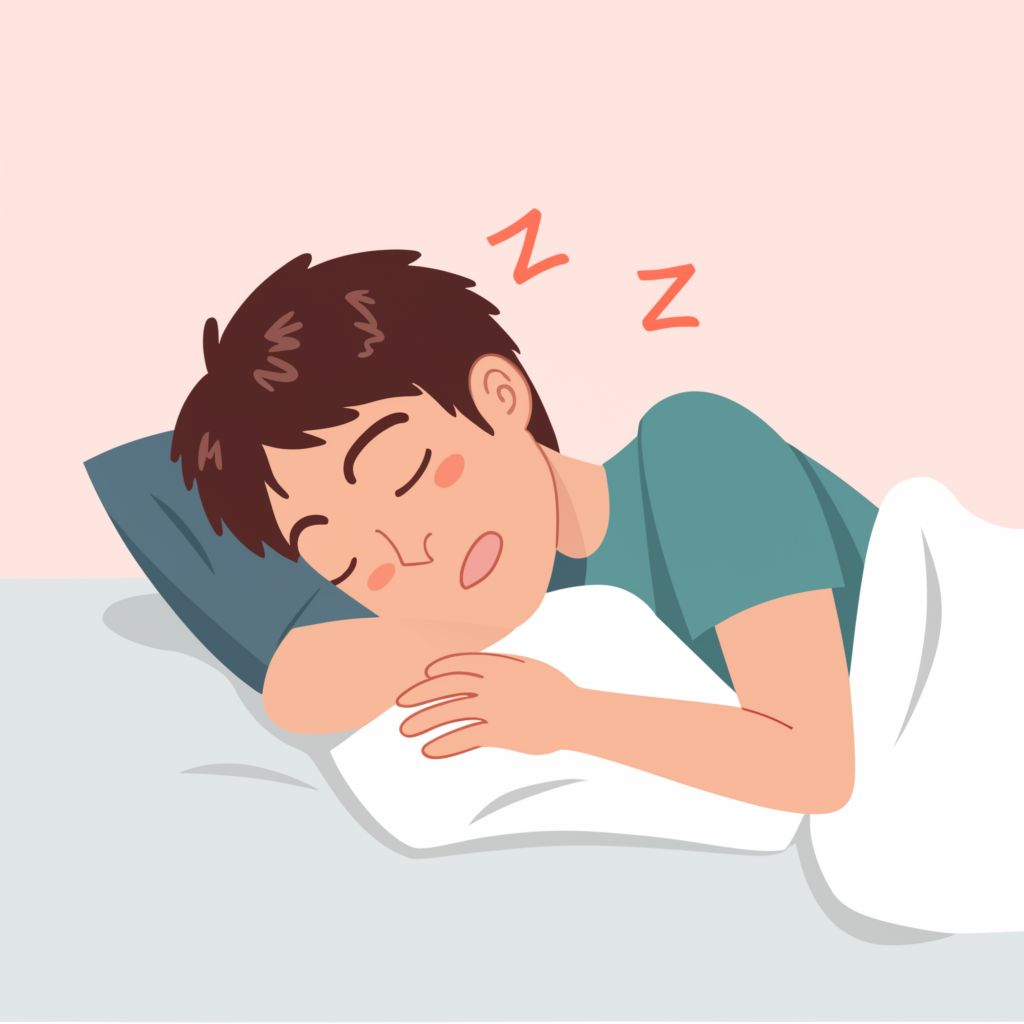Your boyfriend could be sleeping a lot due to stress or a medical condition. Excessive fatigue or lifestyle habits may also be contributors.
Understanding why your boyfriend is sleeping excessively is crucial for his health and your relationship’s wellbeing. Various factors, ranging from stress and depression to physical health issues like sleep apnea or thyroid problems, might be the cause. It’s essential to consider his daily routines; does he have a high-stress job, or is he exerting himself physically or mentally more than usual?
Diet and exercise play a significant role in regulating sleep patterns, so a lack of balance in these areas could be causing oversleeping. Additionally, if he’s using medication, it might have drowsiness as a side effect. Engaging in a conversation about his sleep habits and encouraging him to seek professional advice if necessary can help in identifying the root cause of his oversleeping.
Differentiating Between Fatigue And Excessive Sleep
Recognizing the difference between usual tiredness and extreme sleepiness is key.
It’s about understanding the body’s need for rest versus overindulging.
Understanding your boyfriend’s sleep habits might shed light on his health and lifestyle.
Signs of Unusual Sleep Patterns
Signs Of Unusual Sleep Patterns
In recognizing unusual sleep patterns, look for these indicators:
- Difficulty waking up even after a long sleep
- Napping frequently despite ample night rest
- Disrupted sleep or inexplicable changes in sleep schedule
Common Misconceptions About Sleep Duration
Common Misconceptions About Sleep Duration
When it comes to sleep, many beliefs can mislead us. Let’s debunk some:
| Misconception | Reality |
|---|---|
| More Sleep Equals Better Rest | Quality is more important than quantity |
| If you’re tired, sleep more | Excessive sleep may be a sign of underlying issues |
| Napping compensates | Regular, excessive napping could disturb nighttime sleep |
The Impact Of Lifestyles On Sleep

Many of us wonder why our partners seem to nap more than usual. A peek into daily routines can reveal lifestyle’s role. This includes how often we move and what we eat. These affect how well and how long we sleep.
Effects Of Sedentary Behaviors
Sitting all day can lead to extra snoozing. When your body lacks movement, it gets sluggish. That makes you feel tired. This is often seen in office workers or gamers. Too much screen time before bed also disrupts sleep cycles. Keeping active helps the body stay alert. Let’s see how:
- Exercise boosts energy levels.
- Regular activity promotes deeper sleep.
- Being active reduces stress and anxiety.
Role Of Diet In Sleep Quality
What we eat influences sleep, too. Meals full of sugar and caffeine can disturb rest. They cause spikes and crashes in energy. Healthy foods, though, can enhance sleep. They provide steady energy and help the body relax. Here’s what a good diet contains:
| Food Group | Benefits |
|---|---|
| Whole grains | Support consistent energy levels |
| Lean proteins | Help feel full and satisfied |
| Fruits and vegetables | Supply important vitamins for sleep |
| Healthy fats | Maintain cell health and function |
Choosing the right foods and staying active are keys to better sleep. Your boyfriend might just need a lifestyle tune-up!
Medical Conditions Linked To Oversleeping
Medical conditions often play a crucial role in oversleeping problems. If your boyfriend can’t seem to get out of bed, it’s best to explore potential medical explanations. Conditions ranging from sleep disorders to mental health issues could be contributing to the excessive sleep. Understanding these conditions is the first step to helping him regain a healthy sleep balance.
Sleep Disorders: More Than Just Snoring
Many people think sleep disorders are just about snoring, but they’re more complex.
- Sleep Apnea: This is a common disorder where breathing stops and starts during sleep.
- Narcolepsy: This causes extreme drowsiness and sudden attacks of sleep.
- Restless Legs Syndrome (RLS): It leads to uncomfortable sensations and an urge to move the legs while resting.
All these disorders interrupt deep sleep, leading to the need for more sleep time. If your boyfriend complains of fatigue or other related symptoms, a visit to the doctor is crucial.
Depression And Anxiety: The Hidden Culprits
Depression and anxiety might not be immediately visible, yet they deeply affect sleep patterns.
- Both conditions can increase the need for sleep or cause insomnia.
- They make it harder to follow a healthy sleep routine.
- Mood swings and changes in energy can also disrupt sleep.
These issues often create a cycle of sleep problems that worsen mental health, necessitating professional help for breaking the cycle. Tackling these hidden culprits can be vital in restoring regular sleep habits.
Credit: www.amazon.com
Evaluating Mental Health And Stress Levels
Evaluating Mental Health and Stress Levels when it comes to understanding our loved ones, noticing changes in sleep habits is key. A boyfriend sleeping excessively might signal deeper issues. It’s essential to consider mental health and stress. These play crucial roles in sleep patterns. Dissecting the causes behind excessive sleep can unveil the right path to wellness.
Stress And Its Direct Influence On Sleep
Stress acts as a silent alarm, affecting sleep profoundly. Elevated stress levels trigger the body’s fight or flight response. This can result in too much sleep or too little. Understanding stress’s role provides insight into your boyfriend’s sleep habits. Stress may stem from work, relationships, or even internal pressure. Each aspect can tip the balance of a healthy sleep routine.
- Increased cortisol levels: May cause restlessness or oversleeping.
- Lifestyle choices: Bad habits could be a response to stress.
- Physical symptoms: Headaches and fatigue often accompany stress, leading to more sleep.
Emotional Well-being And Rest Patterns
Sleep is a mirror to our emotional state. A troubled mind can translate to disrupted sleep cycles. It’s vital to recognize symptoms like prolonged sleep as potential cries for help. Emotional well-being is tightly knit with how we rest. Depression, anxiety, and other mental health issues can drastically alter sleep needs. An assessment by a professional may be the key to better sleep and improved emotional health.
| Symptoms | Emotional State | Impact on Sleep |
|---|---|---|
| Excessive sleepiness | Depression | Increased sleep hours |
| Restlessness | Anxiety | Irregular sleep patterns |
| Lack of energy | Stress | Longer sleep duration |
Addressing these issues early can prevent serious health outcomes. It encourages recuperative sleep and a more balanced life. A healthy approach involves stress management. It also includes emotional support and medical guidance when necessary.
Navigating Relationship Dynamics And Sleep
Love and sleep might seem worlds apart but they often share the same bed. In a relationship, if one partner suddenly sleeps more, it can lead to worry. Understanding the balance between togetherness and rest is key. Let’s explore how couples can tackle this issue together, without losing those precious Z’s.
Communication: Addressing Sleep Concerns Together
Open dialogue is crucial when changes in sleep patterns arise. Express your concerns calmly. Ask if stress, health, or daily habits have changed. Listening is just as important as speaking. Be a team and find solutions that work for both of you.
- Set a time to talk when both are alert.
- Share feelings without blaming.
- Discuss sleep schedules and bedtime routines.
- Seek medical advice if needed.
Balancing Alone Time And Couple Time For Better Rest
A healthy balance of together time and individual time can lead to better sleep. Respect each other’s need for space. Schedule quality couple time without encroaching on solo rest periods. This keeps the relationship fresh and allows for rejuvenating sleep.
| Together Time | Alone Time |
|---|---|
| Weekly date nights | Personal hobbies |
| Morning routines | Quiet reading |
| Evening walks | Individual workouts |
When To Seek Professional Help
Navigating through excessive sleep in a relationship can spark worries. Sleeping too much might hint at underlying issues. It’s vital to decipher when professional help is necessary. Not every long snooze calls for medical advice. Yet, certain situations demand a closer look from experts. Let’s delve into recognizing the warning signs and selecting the appropriate healthcare specialist.
Recognizing Red Flags
Excessive sleep could be a red flag for health concerns. Observation is key. Look for these concerns:
- Frequent fatigue despite sleeping plenty.
- Napping repeatedly, even during inappropriate times.
- Lack of interest in activities once enjoyed.
- Mood swings or irritability.
- Concerning changes in appetite or weight.
These are telltale signs. If noticed, consider the next step – professional advice.
Approaching The Right Health Professionals
Choosing the right professional is crucial. Here’s a guideline:
- Start with a primary care doctor. They provide initial evaluation.
- If needed, they will refer to a specialist.
- Mental health therapists can address emotional or psychological causes.
- Sleep specialists are best for sleep disorders.
Collaboration between professionals ensures comprehensive care. Contact immediately if sleep patterns disrupt life.
Credit: twitter.com
Frequently Asked Questions For Why Is My Boyfriend Sleeping So Much
Could Stress Cause Excessive Sleeping?
Excessive stress can lead to increased sleep as a coping mechanism. It’s the body’s way to recover from stress-related exhaustion. However, persistently sleeping too much might suggest underlying issues like depression that also need attention.
Is Oversleeping Linked To Health Problems?
Yes, consistently oversleeping can be a sign of various health issues such as thyroid disorders, diabetes, or heart disease. It is important to consult a doctor if there’s a drastic change in sleeping habits.
How Much Sleep Is Too Much?
Adults typically need 7-9 hours of sleep. Sleeping over 9 hours regularly could be considered too much, especially if it impacts daily functioning or overall health.
What Lifestyle Factors Affect Sleep Quality?
Lifestyle factors like alcohol consumption, irregular sleep schedules, and lack of physical exercise can severely impact sleep quality. A balanced diet and a consistent sleep routine improve sleep.
Conclusion
Understanding your boyfriend’s need for extra sleep can be puzzling. It’s vital to consider both lifestyle and health factors. Encourage open dialogue and a medical check-up if needed. Remember, balanced rest contributes to overall well-being. Seek harmony in sleep patterns for a healthier relationship.





Leave a Reply